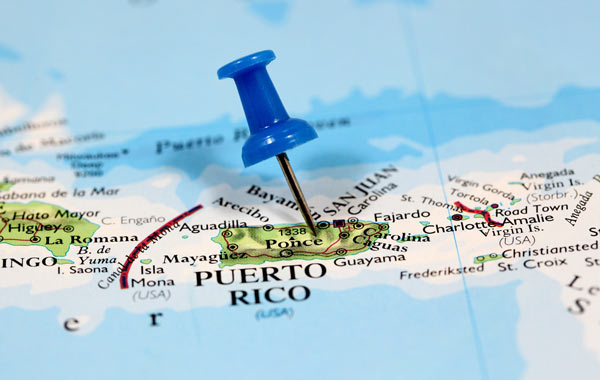Policies that address multiple problems in a positive way are seldom executed. But there may be a way to approach three serious issues in a way that benefits everyone.
It is widely reported than more than 100,000 people crossed our southern border illegally in the month of March 2019. We are not prepared for this tidal wave of people, especially since the majority are women, children, and families. Our border security was designed to deal with young men who are entering the country illegally for work or to smuggle contraband. Keeping the bad people out (for example, the people who are transporting illegal drugs) is impossible when our border agents are overwhelmed by poor families and their children. This is clearly a crisis of major proportions.
On September 16, 2017 a devastating hurricane named Maria slammed into the island of Puerto Rico carrying winds as high as 175 miles per hour. This was one of the most powerful storms on record. In its initial impact and the year that followed, nearly 3,000 people died. Virtually every building in Puerto Rico was damaged or destroyed by Maria. The island’s infrastructure and electric grid were decimated. As recently as January 2019 nearly 500,000 people were still without electricity, almost 20% of the population. The slow recovery from the storm that crippled nearly every business on the island accelerated the long trend of out-migration from this U.S. protectorate. There are now fewer than four million people living in Puerto Rico.
Where there is great despair there is often a seed that can grow into great opportunity. Puerto Rico can recover and prosper. It needs investment and people. It benefits from being a part of the United States of America, a democracy that enforces the rule of law. It is nearly a state like Hawaii and may cross that threshold one day.
Though Puerto Rico has been destroyed by natural forces, its institutions and potential survive. Living in Puerto Rico and contributing to rebuilding the island is far more appealing than living in the squalor and lawlessness that is Central America. It has been reported that poor immigrant families are paying as much as $7,000 for a bus ride across Mexico to the southern border of the U.S. A family of four can fly from Guatemala City to San Juan for less than $2,000.
For most of the citizens of Puerto Rico, Spanish is their first language. Many speak English, of course, but it’s hard to find a person who doesn’t speak Spanish. A family from Central America would have little trouble adjusting to Puerto Rican culture.
Puerto Rico needs investment. The U.S. has been slow to provide all that is needed because there are not enough checks and balances to ensure funds allocated to rebuild the island are properly spent. But the opportunity for business is meaningful.
This is what I propose: (1) Allow citizens from the three countries that are overpowering the Department of Homeland Security on our southern border–Guatemala, Honduras and El Salvador–to migrate freely to Puerto Rico; (2) Allocate necessary funds to rebuild the island’s infrastructure and to match private investment; (3) Appoint a special commission to oversee the proper expenditures of these funds; and, (4) Provide a small stipend for Central American families to resettle in Puerto Rico.
Certainly, there should be rules for these immigrants. For example, they may be prohibited from moving to the mainland of America for a long period of time. They may, and I think they will, decide to live and prosper in Puerto Rico. There may be other rules, but what I am proposing may release some of the pressure at the southern border permitting Homeland Security to place more emphasis on security. It may address a major humanitarian crisis for these poor immigrants. It might help to make Puerto Rico great again.
Puerto Rico needs people and investment. Immigrants need work and a safe place to raise their children. Give both a chance and unleash the power of investment in a free market economy.
What I am proposing is not a plan, of course. It’s an idea. Congress and the Administration will have to put flesh on the bones. But redirecting massive resources from keeping people out toward encouraging them to come into a place that needs them is certainly better than many alternatives. Once the pressure is released, perhaps cooler heads can determine how to make our border more secure. But right now we are in crisis, both at the border and in Puerto Rico. Let’s address both problems in a way that positively impacts the lives of millions and turn these crises into opportunities.


